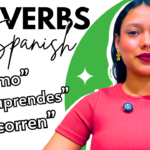
This is blog post is from an email that I sent to my customers in April of 2007. This was before I moved to Medellin and still lived on the Atlantic coast of Colombia in a city called Barranquilla.
Here’s the email that I sent:
I noticed something that native Spanish speakers do that English speakers usually don’t do when speaking Spanish (or English).
Do you know what it is?
Well, Spanish speakers tend to use the present tense where English speakers would use the future tense.
Let me give you some examples.
I am now living in a hotel here in Barranquilla, Colombia. This morning when I returned to “mi habitación” after the “muchacha” that cleans my room left, I noticed that she failed to leave any “papel de baño” or “papel higiénico.”
So I called the front desk and told the “señora” who answers the phone that there was no “papel higiénico en mi baño.”
Her response was “ya se lo mando.”
Literally, that means “already I send it to you.”
I resisted the temptation of responding with “if you have already sent it to me, then it certainly hasn’t already arrived.” And I simply responded with “gracias señora.”
Notice that she said “ya se lo mando.” A closer translation than the literal “already I send it to you” is “I am sending it to you now.”
But my point is that she did NOT use the future tense and say “ya se lo mandaré.” (I will send it to you now).
And she did not say “voy a mandárselo ya” (I am going to send it to you now).
And this wasn’t an isolated incident of a native Spanish speaker using the present tense instead of the future tense.
When I am on the phone here speaking to someone before hanging up the phone, the person may say “te llamo.” Literally, it means “I call you.” But in English, we would say “I’ll call you” or “I will call you.” And the use of the present tense instead of the future tense isn’t limited to statements.
Native Spanish speakers often use the present tense in questions where English speakers would use the future tense.
How To Say Will You Call Me Later in Spanish
Here’s an example that just happened minutes ago. I was on the phone speaking to a friend when I told him that I had to go because I was busy writing an important email to my customers and readers. And he asked “me llamas luego?” (You call me later?)
But in English, we would ask “WILL you call me later?”
My Puerto Rican friends back in New York would have asked “¿me llamas pa’átras?” (You call me back?)

Colombians consider “me llamas pa’ átras?” more like “Spanglish” than Spanish. So in Colombia it is better to ask “¿me llamas luego?”
And here’s another use of the present tense by a native Spanish speaker instead of the future tense. Yesterday, I saw a “joven” or “adolescente” (teenager) “coqueteando” (flirting) with some “muchachas” who were in a car. And he asked the driver “me llevas contigo?”
Literally, “you take me with you?” Notice that he did NOT ask “me llavarás contigo?” (Will you take me with you?)
To me it is very strange noticing this because in New York sometimes my Spanish speaking friends who were not native English speakers would say in English phrases such as “I call you” or ask “You call me?” instead of “I will call you,” or “Will you call me?”
I didn’t think much of it at the time. I just assumed that he or she didn’t speak English well. And I understood what he or she was trying to say.
I am not saying that native Spanish speakers never use the future tense. I am just saying that they have a tendency to use the present tense where English speakers would use the future tense.
Before I end this email, I just want to share with you my favorite phrase where my “ex-novia” (ex-girlfriend) used the present tense instead of the future tense:
¿Me llevas al cielo?
(You take me to heaven?)
A better way to translate “me llevas al cielo?” is “will you take me to ecstasy?”




